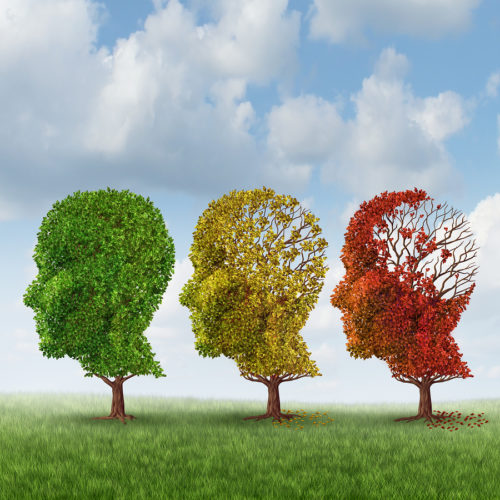More seniors are hospitalized for traumatic brain injuries (TBI) due to falls than any other age group.
With age comes a greater risk of a slip, trip, and fall accident, and when they hit their head hard enough, it could injure the brain. Whether the effects are mild or severe, the elderly person is most likely going to experience some physical and mental symptoms.

Recovery is never easy and the actual results vary in each person. What is almost certain is that the elderly adult will need some kind of elder care assistance for their personal care.
What Exactly is a Traumatic Brain Injury?
When the head hits an object with enough force, the brain is injured. Brain injuries are complex and range from mild concussions to significant head trauma. Even after being released from the hospital, elderly adults can experience dizziness, headaches, lack of focus, poor balance, bad memory and a loss of bodily control. In serious cases, seniors may have seizures, lack of coordination, immobility, and communication problems. Many seniors with TBI also have serious mental health and emotional issues as a result.
Recovering from Traumatic Brain Injuries
After the elderly person has been treated at the hospital for a few days or weeks, their doctor will make the decision whether they can go home or to a rehabilitation facility. It all depends on the patient and what kind of progress they are making. Very few seniors can go home and live on their own again. Almost all need some form of elder care assistance to help them with the day to day tasks of living. Family members that are concerned about their aging loved one’s recovery at home turn to in-home care services to assist.
When a professional elder care assistant is around, elderly adults with a TBI don’t have to struggle to achieve things like cooking, cleaning, bathing, getting dressed and more. The assistant can let the senior do what they can and when they need help, they step in. Elder care assistants can cook, clean, and do laundry as often as it is needed. They can help with hygiene and grooming, using all their training on how to work well with the elderly. Because there are lots of follow-up medical appointments as well as physical and occupational therapy appointments, the elder care aide can provide transportation. That way, the aging adult can always get where they need to go without depending on family members.
It’s quite common for family members to have lots of questions about the long-term effects of their aging loved one’s brain injury.
They want to know how long the injury will affect their relative’s inability to function, both now and in the future. Unfortunately, there is simply no way to know, as the later stages of recovery can bring both improvement or deterioration. At least with an elder care aide in place, the aging adult can have as much help as they need as they work through recovering from their traumatic brain injury.
If you or an aging loved one is considering hiring Elder Care in La Mesa, CA, or the surrounding area, please contact the caring staff at Love 2 Live Care. Call Today 1-619-291-4663
Source:
https://www.omicsonline.org